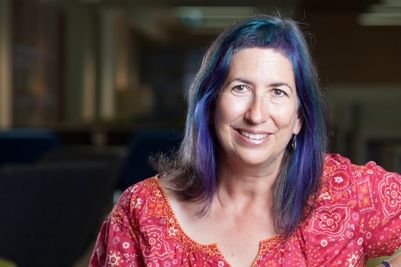
Is there really a “flood of refugees” crossing the Quebec-Vermont border? Does Canada need to clamp down on an influx of illegal migrants? Queen’s Law professor Sharry Aiken, an expert in immigration and refugee law, has addressed the Supreme Court of Canada on numerous occasions with respect to this topic. As the authority on Canadian refugee policy and security issues, she is encouraging Queen’s alumni to take a critical look at those attention-grabbing headlines and stories and ask some important questions.
Aiken will speak about this topic in depth as the keynote speaker at the upcoming Montreal Alumni Branch Dinner on May 15 and hopes to clear up misconceptions about refugees during her talk titled “Refugees at the Border: Queue Jumping or Policy Failure?”
Online registration for the Montreal Alumni Branch Dinner and Aiken’s presentation is now open.
In a Q&A session, Queen’s Alumni Relations staff spoke with Professor Aiken about the topic of her presentation.
Question: Your talk is titled “Refugees at the Border: Queue Jumping or Policy Failure?” What can Queen’s alumni in Montreal expect to hear?
Answer: They are going to hear a critical take on the situation at the Quebec-Vermont border. It’s a subject that has been in the headlines off and on since President Trump assumed office. People are familiar with the story. They have seen the pictures of migrants coming over the Quebec border from the U.S. with all their belongings in bags. They are being received in Canada with growing alarm from border officials. There are descriptions such as “growing influx” and “a flood of refugees.” These are the stories that hit the headlines.
Question: What do you want alumni to take away from your talk?
Answer: I’d like to clear up some misconceptions that are out there. Refugees are often described as “illegal migrants” and some people say we need to “clamp down” and “fortify the border” in order to stop the flow. My take is there is more to the numbers and there is more than meets the eye. My talk will separate the truth from fiction.
Question: Do you feel the current political climate in the U.S. – with talk about building a wall and Muslim travel bans – has had an influence in Canada and made refugee law a hot topic here?
Answer: Refugee law and policy is always a hot topic in both Canada and the United States. It is seldom far from the headlines. Countries all over the world grapple with the appropriate policy response in the face of an unrelenting flow of people. Right now the number of refugees is higher than it has been since the end of Second World War, and this poses a challenge to receiving states. So, in my view, it is not more of a hot topic today than it was three years ago or 10 years ago.
Question: Are you happy with the way the Trudeau government has been handling the refugee crisis from Syria?
Answer: The Trudeau government should be commended for its timely and effective resettlement targets in relation to Syrian refugees. In the face of the escalating crisis in Syria, Canada stepped up and increased the annual quota for resettling refugees from Syria -- both by government and through private sponsorships. But we need to understand that resettlement is a drop in the bucket. We need to work with international partners to press other receiving states around the world to increase their targets and renew their commitments because the crisis in Syria – as well as in other parts of the world – is far from over.
To attend the Montreal Alumni Branch Dinner and presentation by Prof. Aiken, please register.